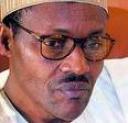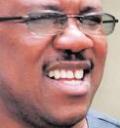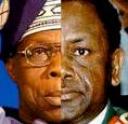2007: Again, We Have Lost It
Many a time, you would hear some Nigerians, those who claim to wear epaulettes of patriotism, take umbrage at some others who genuinely agonise over the country’s inability to make any appreciable progress on the democratic front. To them, it is nonsensical to expect Nigeria to be up and running democratically because the country itself is only but a tot, yet to be weaned on the tenets of democracy.
It does not bother such people that Nigeria is 46. If you dare cite example with an event in the US, they will pillory you, arguing that America became independent in late 18th century and has practised democracy for over two centuries. But those who use age to rationalise our insalubrious political conduct forget that in the same western hemisphere, there is also a country called Haiti, the world’s first black-led republic which became independent in 1804; the first Caribbean state to achieve independence. Today, Haiti remains the poorest nation in the Americas without a scintilla of democratic culture.
Again, our self-acclaimed patriots would situate Haiti’s difficulties in its tortuous history. They forget that until 1775 when war broke out between the British and the American colonists, leading to the 1776 declaration of independence by the colonists and eventual recognition of US independence by
Britain in 1783, the former was a colony of the latter. Right here in Africa, Liberia which was founded in 1821 as a haven for freed American slaves became independent in 1847 and adopted a US-style constitution. It was never an official US colony or a colony of any other country. Yet, until last year, Liberia remained a hell on earth, while Ghana, a country poised to celebrate her golden jubilee this year has become an exemplar of a thriving democratic country. I have given these examples just to buttress the point that age has little or nothing to do with a country’s ability to grapple with the intricacies of democracy. What counts is the sincerity of purpose and vision of the leadership. The people on the other hand must be eternally vigilant. Therefore, that Nigeria is being nourished on an exiguous democratic diet has less to do with the fact that it got its independence from Britain 46 years ago. But it has everything to do with the treachery and perfidy of leadership, and the docility of the followers. Democracy is a game of benchmarks. There must be minimum levels of expectations by us, from those who aspire to rule. Positions of leadership should not be an all-comers affair. A man who aspires to lead must evince certain qualities. And the people must imbue in the process of leadership selection a certain level of authority. The process of selecting the leaders of a country should be a very serious one. It should not be reduced to a circus. That is what makes the difference between America and Haiti, Ghana and Liberia, Benin Republic and Nigeria; countries with discernible democratic ethos and those that have repudiated same
This difference explains why, almost two years to America’s presidential election, the entire country has become electrified by the mere act of aspirants taking the putative steps of setting up exploratory committees, which is no more than the declaration of their intention to explore further their intention of aspiring for America’s presidency in 2008.
In the US, both the aspirants and the citizenry know what the issues are. They appreciate the problems facing America. They are desirous of solving those problems and that will form the kernel of the campaigns from the primary to the general election. The candidates must, in very explicit manner, tell the people where they stand on those issues and what answers they would bring to bear on the myriad of problems confronting America today.
The debate has started in earnest. The people are scrutinising rigorously not only the private lives of those who have taken the tentative step of making their aspirations known, they are querying their antecedents. Thus Hillary Rodham Clinton, the New York senator who voted, authorising George Bush to wage what Chinua Achebe would call a ‘war of blame’ in Iraq but who in recent times is chanting the anti-war mantra is being asked to explain the difference between ‘authorisation’ and ‘declaration’ of war.
Two years before the election and only with her declaration of intention, Americans are reminding her of the scandals that buffeted the administrations of her husband in which she was very visible and played roles far weightier than those of a first lady, right from the little state of Arkansas to the White House. But here in Nigeria, two months to the general election, those who call themselves frontrunners are unable to articulate the reason why they want to be president. Yet, the issues are straightforward. It is self-evident that Nigeria is in a deep hole. Forty-six years after independence, Nigeria’s socio-economic status remains dire. The country occupies the unenviable status as one of the 20 counties in the world with the lowest Human Development Index (HDI) in the ranking of the United Nations Development Programme (UNDP). Standard of living is one of the lowest in the world; same as life expectancy. The country’s infrastructural backbone has broken down completely and corruption remains rife. Security of lives and properly has become a mirage, while unemployment has hit the roof. Per capita income embarrassingly remains one of the lowest in the world. A low intensity war is being waged in the creeks by Niger Delta militants against the Nigerian state. So, the least the candidates are expected to do by now is to come up with unambiguous, well thought-out policies that would address these problems and by so doing signal the beginning of the long and difficult climb out of the very deep hole our leaders have dug.
But what have we seen so far? The candidates are saying it is too much of an expectation. PDP presidential candidate wants our votes because he supports the present administration’s reforms programme. Whatever it is! Most of those in the opposition want our votes because they are opposed to the programme. Why? We don’t know. None of them seems to have an original idea how to pull
Nigeria out of this hole. And you would expect the people to be scandalised. No! They have constituted themselves into an orchestra, clapping and cheering, obviously beside themselves with joy.
Thus, on Wednesday, January 25, Umaru Yara’Adua, PDP flag bearer was in Anambra to meet with the people. At the palace of the traditional ruler of Awka, Obi Gibson Nwosu, he told Anambrarians why he wants to be their president. Hear him: “My party and myself, we are seeking to reunite because our party and our president are doing great reforms that seek to transform completely our great nation so that we join other developed nations of the world to become a developed industrial nation and we are going to make sure that we leave in peace under democratic rule, in harmony with one another, in prosperity. This is the vision of our president and the Peoples Democratic Party and this is what is going to be my vision and those of my colleagues when we form the government in May 2007 by the grace of God.” How inane can a speech be?
Then on Saturday, the party formally flagged off its campaign at the Tafawa Balewa Square in Lagos. Again, hear Yara’Adua: “We will do everything within our power to realise the PDP dream. We are sincere, honest and determined to ensure that Nigeria achieves greatness. On this, there is no going back. I want to call on all Nigerians wherever they are to choose the path of PDP, to choose the path of greatness, to choose the path of progress.”
But this rather vacuous speech begs obvious questions. What is this so-called PDP dream that Yara’Adua wants to realise and for which he wants Nigerians to elect him president? What steps will he take to realise this dream assuming there is a dream? Why must Nigerians buy into this dream? The implication is that either the man hasn’t any idea what he wants to do to turn around the damning fortunes of the country or lacks the ability to articulate these ideas and communicate same in an intelligible manner to the people, or both. Sincerity and honesty of a leader, important as they are, do not on their own necessarily guaranty a nation’s greatness. Such virtues can only compliment the vision of the leader. A leader must have an idea of what the problems of his country are, what the people want and what is expected of him and articulate distinct, comprehensible, coherent and lucid policies to tackle those problems so as to meet the people’s expectations. If Yara’Adua has any, he is yet to tell Nigerians what they are. It is not enough for a man aspiring for the highest office in a country, a man asking 140 million people to put their destiny in his hands to hide under the policies of his party and say nothing of how he intends to pilot the affairs of the state. When the political chips are down, the president who is the Commander-in-Chief takes the decisions and not the party.
But, he is not alone. Of the motley crowd that call themselves presidential candidates, only one or two have an idea of what the issues are and how to address them. Unfortunately, they are the very people that have been written off as not having what it takes to win elections in Nigeria. The implication of all these is that again, we may have lost it. Many Nigerians had hoped that 2007 would present a very good opportunity for us to get it right. As the elections draw closer, that hope has become forlorn despite the flatulent boasts to the contrary in some quarters. We have an infinite capacity to prove our worst detractors right always. At every turn in the nation’s tortuous democratic peregrination, we keep making the same tragic mistakes that diminished us in the past. Even when we pretend to be making an effort at using our chequered history as a compass to navigate out of turbulent political storm, which the delicate art of nation building induces, such effort is at best perfunctory.






